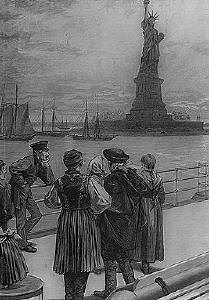A Jurisprudence of Individual Rights
Right to Property
 Digest
of Justinian, 1.8.2.1 (Marcian): "Quaedam naturali iure communia sunt
omnium, quaedam universitatis, quaedam nullius, pleraque singulorum, quae
variis ex causis cuique adquiruntur. Et quidem naturali iure omnium communia
sunt illa: aer, aqua, profluens, et mare, et per hoc litora maris (Also
Instit. 2.1.1)." [Some things are
common to all men by ius naturale, some things belong to a community, some
things belong to no one. Many things belong to individuals who have
acquired them for various reasons. And indeed by ius naturale these
things are common to all men: air, flowing water, the sea, and the shores of
the sea.] Res nullius
Digest
of Justinian, 1.8.2.1 (Marcian): "Quaedam naturali iure communia sunt
omnium, quaedam universitatis, quaedam nullius, pleraque singulorum, quae
variis ex causis cuique adquiruntur. Et quidem naturali iure omnium communia
sunt illa: aer, aqua, profluens, et mare, et per hoc litora maris (Also
Instit. 2.1.1)." [Some things are
common to all men by ius naturale, some things belong to a community, some
things belong to no one. Many things belong to individuals who have
acquired them for various reasons. And indeed by ius naturale these
things are common to all men: air, flowing water, the sea, and the shores of
the sea.] Res nullius
Huguccio (ca. 1190) to D.1 c.7: "By natural law some things are mine and other things are yours. But this is by permission, not by command, because divine law never commanded that all things are in common or something is owned by someone. Rather divine law permits all things to be in common and something to be owned . . . c.8: What is acquired through work and care can be said to be mine."
Odofredus (1250 A.D.) to Justinian's Code 7.37.3 (Bene a Zenone) (Lyon: 1480), vol. 1, unfol.: "Here Martinus wished to state that the emperor is the lord of all property. He cited a law that asserted that the emperor can give property to the soldiers in the army. . . . But we say otherwise, because anyone has the right to vindicate his property in court . . . the emperor cannot vindicate my property in court . . . "
Roman Law Ideas about Property Rights
Right to Survival that gives Persons the Right to Use the Property of another Person
Gratian, Decretum, D.8 d.a.c.1: "Differt etiam ius naturae a consuetudine et constitutione. Nam iure naturae sunt omnia communia omnibus, quod non solum inter eos servatum creditur, de quibus legitur: `Multitudinis autem credentium erat cor unum et anima una' [Acts 4:32], verum etiam ex precedenti tempore a philosophis traditum invenitur. Vnde apud Platonem illa civitas iustissime ordinata traditur in qua quisque proprios nescit affectus. Iure vero consuetudinis vel constitutionis hoc meum est, illud vero alterius." [The law of nature differs from custom and from constitution. By natural law all things are held in common, a practice found not only among those spoken of in the Acts of the Apostles, "The multitude of believers were of one heart and mind," but in earlier times as we have learned from the philosophers. Plato says that the most just city is one in which no one considers anything his own. In contrast by customary law and constitutions one thing is called mine and another thing yours]
Gratian, Decretum, D.47 c.8 (Rufinus
of Aquileia): "Proprium nemo dicat quod est commune, quod plusquam
sufficeret sumptum etiam violenter sumptum est."
[No one may call his own what is common to all.
Whatever is taken more than what is sufficient is violently taken]
plusquam
sufficeret sumptum etiam violenter sumptum est."
[No one may call his own what is common to all.
Whatever is taken more than what is sufficient is violently taken]
Johannes Teutonicus, Commentary on Gratian's Decretum, D.47 c.8 v. commune: "idest communicandum tempore necessitatis . . . et lex dicit quod cibaria tempore necessitatis sunt omnibus communicanda." [That is things are in common in time of necessity. The law says that food in times of necessity is common to all]
Johannes Teutonicus to D.47 c.8 v. etiam violenter: "Dicitur hic quod per violentiam dicitur auferre qui ultra necessaria sibi retinet . . . verum est si hoc fiat tempore necessitatis nam alias potest quis sibi ultra necessaria retinere." [It is said here that someone who takes more than necessary takes that violently. That is true is it is taken in time of necessity; otherwise someone may take more than necessary]
Discussion of the rights of the poor
Maxim: Necessitas legem non habet [Necessity knows no law]
Right to Freedom of Movement
 Emanuel Gonzalez Tellez (^
1649):
Truly the present decision is contrary to ius
and natural liberty and cannot be held. For a disposition of ius that
infringes upon natural liberty cannot be admitted. The present disposition
infringes upon natural liberty and cannot be sustained. First we may prove
the minor thesis: a disposition that anyone may not leave a certain place or
a certain city infringes upon natural liberty.
[Verum praesens decisio ut juri et naturali libertati contraria, sustineri
nequit; nam juris dispositio, per quam infringitur naturalis libertas,
admitti non debet, sed praesens dispositio infringit naturalem libertatem,
igitur sustineri non debet. Probatur minor, nam dispositio ut quis a tali
loco vel civitate non recedat, infringit naturalem libertatem]
Emanuel Gonzalez Tellez (^
1649):
Truly the present decision is contrary to ius
and natural liberty and cannot be held. For a disposition of ius that
infringes upon natural liberty cannot be admitted. The present disposition
infringes upon natural liberty and cannot be sustained. First we may prove
the minor thesis: a disposition that anyone may not leave a certain place or
a certain city infringes upon natural liberty.
[Verum praesens decisio ut juri et naturali libertati contraria, sustineri
nequit; nam juris dispositio, per quam infringitur naturalis libertas,
admitti non debet, sed praesens dispositio infringit naturalem libertatem,
igitur sustineri non debet. Probatur minor, nam dispositio ut quis a tali
loco vel civitate non recedat, infringit naturalem libertatem]
Cicero
Hugo Grotius (1583-1645), De iure belli ac pacis libri tres (1625)
Individual Rights in Contracts
Guido of Suzara (1290) Suppletiones to Dig. 1.3.31(30) (Princeps legibus), Clm 6201, fol. 10v: What if the prince makes a contract with a subject, is he held to honor the contract if he is summoned to court? It seems that he is not bound to observe a summons since he is "legibus solutus." . . . Nevertheless, the prince is bound to honor a contract because a contract is a part of the ius gentium. The prince cannot derogate that right, since the right is immutable.
Guido of Suzara (1290) to Cod.
1.14(17).4 (Digna vox), Paris, B.N. lat. 4489, fol. 33v:
Note that if the emperor makes peace with any city or
with any count or baron, and enters into any agreements, he is bound to
observe them; he cannot contravene nor break them . . . He also
cannot break agreements that his predecessors made . . . The
maxim, an equal cannot have authority does not apply in this case .
. . because the emperor does not have an equal as long as he lives,
and a successor, his own heir, has to preserve the arrangements of his
predecessors.
Matrimonial Rights
Individual's right of consent, Parental consent no longer necessary; Equality of the man and woman, Ius coniugale
The most thorough discussion of the right of marriage is Charles J. Reid, Jr. Power over the Body, Equality in the Family: Rights and Domestic Relations in Medieval Canon Law. Emory University Studies in Law and Religion. Grand Rapids, Michigan-Cambridge: William B. Eerdmans Publishing, 2004.